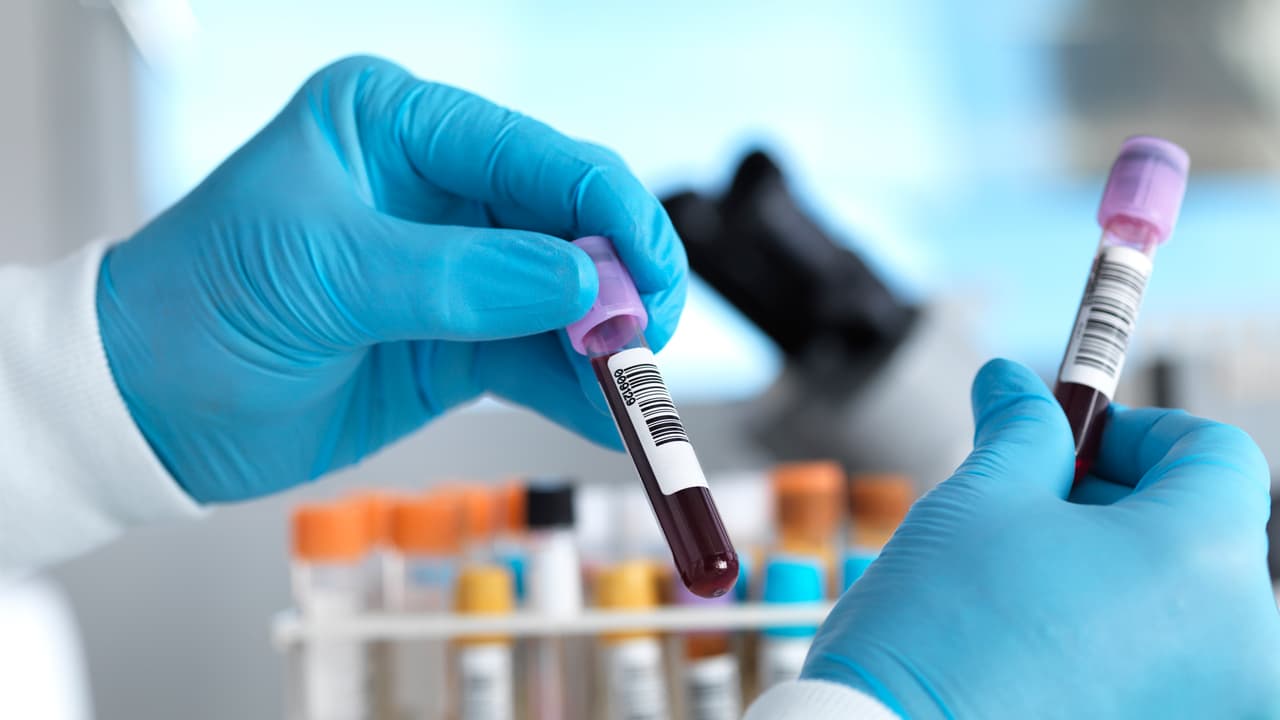Health
Scientists Develop HPV-DeepSeek Test to Detect Cancer Early

Researchers at Mass General Brigham have introduced a groundbreaking blood test named HPV-DeepSeek, which can identify human papillomavirus (HPV)-linked head and neck cancers as much as ten years before symptoms manifest. The test boasts an impressive accuracy rate of 99%, potentially transforming the landscape of early cancer detection.
Head and neck cancers, predominantly caused by HPV, account for approximately 70% of such cases in the United States. Unfortunately, these cancers frequently remain undetected until they reach advanced stages. Unlike cervical cancer, which benefits from routine screenings, there has been no reliable test for early detection of HPV-related throat cancers—until now.
Innovative Detection Method
The findings, published in the Journal of the National Cancer Institute, reveal that HPV-DeepSeek can detect minute fragments of HPV DNA in the bloodstream, long before any tumors become apparent. According to Dr. Daniel L. Faden, the lead author and surgical oncologist at Mass Eye and Ear, “We can now accurately detect HPV-associated cancers in asymptomatic individuals years before diagnosis. Catching these cancers early could mean far less aggressive treatment and better quality of life for patients.”
HPV-DeepSeek employs whole-genome sequencing to meticulously search blood samples for viral DNA shed by cancer cells. In trials with stored blood samples, the test successfully identified cancer-related DNA in 22 out of 28 individuals who later developed the disease—sometimes nearly eight years prior to their diagnosis. By utilizing machine learning techniques, researchers enhanced the test’s accuracy, detecting 27 of 28 future cancer cases, even in samples taken up to a decade before actual diagnosis.
Future Implications and Trials
A large-scale trial funded by the National Institutes of Health (NIH) is currently in progress, aiming to validate these promising results by utilizing hundreds of stored blood samples from national cancer screening studies. Should these trials prove successful, HPV-DeepSeek could facilitate routine blood-based cancer screenings, akin to cholesterol or glucose tests. This would enable healthcare providers to address cancers during their most treatable stages.
Dr. Faden also emphasized the transformative potential of such tools, stating, “Instead of reacting to cancer, we could predict and prevent it.” As research advances, the implications of HPV-DeepSeek may lead to a significant shift in cancer prevention strategies, prioritizing early detection over traditional treatment methods.
-

 World5 months ago
World5 months agoSBI Announces QIP Floor Price at ₹811.05 Per Share
-

 Lifestyle5 months ago
Lifestyle5 months agoCept Unveils ₹3.1 Crore Urban Mobility Plan for Sustainable Growth
-

 Science4 months ago
Science4 months agoNew Blood Group Discovered in South Indian Woman at Rotary Centre
-

 World5 months ago
World5 months agoTorrential Rains Cause Flash Flooding in New York and New Jersey
-

 Top Stories5 months ago
Top Stories5 months agoKonkani Cultural Organisation to Host Pearl Jubilee in Abu Dhabi
-

 Sports4 months ago
Sports4 months agoBroad Advocates for Bowling Change Ahead of Final Test Against India
-

 Science5 months ago
Science5 months agoNothing Headphone 1 Review: A Bold Contender in Audio Design
-

 Top Stories5 months ago
Top Stories5 months agoAir India Crash Investigation Highlights Boeing Fuel Switch Concerns
-

 Business5 months ago
Business5 months agoIndian Stock Market Rebounds: Sensex and Nifty Rise After Four-Day Decline
-

 Sports4 months ago
Sports4 months agoCristian Totti Retires at 19: Pressure of Fame Takes Toll
-

 Politics5 months ago
Politics5 months agoAbandoned Doberman Finds New Home After Journey to Prague
-

 Top Stories5 months ago
Top Stories5 months agoPatna Bank Manager Abhishek Varun Found Dead in Well









